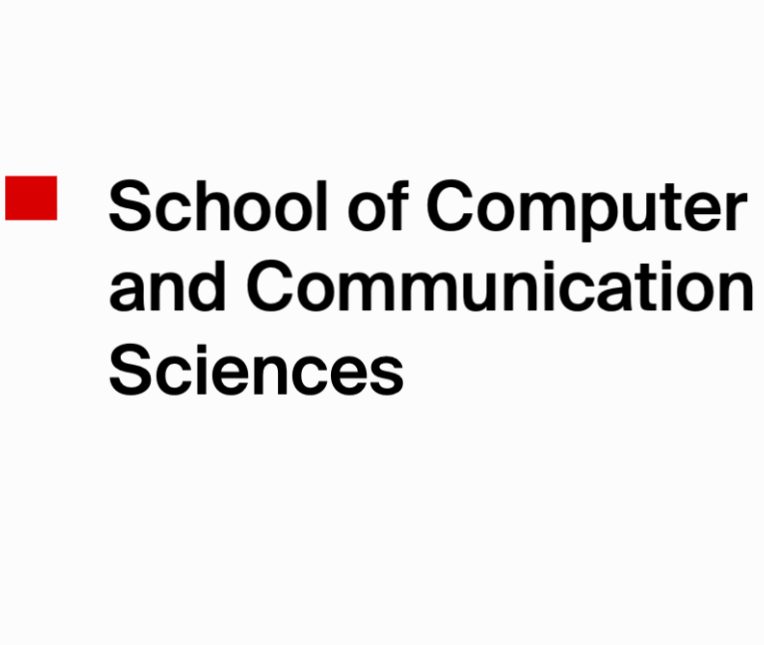The EPFL Workshop on Trustworthy Data Science and AI is a one-day intensive event bringing together world-leading experts to explore cutting-edge methods and practices for ensuring veridical (truthful), reliable, and reproducible data science and artificial intelligence.
The workshop will take place exclusively on-site at EPFL on June 30, 2025.
Through interdisciplinary dialogue, the workshop will address the complexities involved in developing AI systems that are not only performant but also transparent, reproducible, and robust, contributing to the advancement of responsible and trustworthy data-driven research.
Designed for researchers and students aiming to strengthen their data science practices, this workshop offers a unique opportunity to engage with leading experts and deepen their understanding of trustworthy data science and AI methodologies.
8:00 – 9:30 – Coffee and Check-in
In this talk, I will introduce the Predictability-Computability-Stability (PCS) framework for veridical (truthful) data science, highlighting its critical role in producing reliable and actionable insights. I will share success stories from cancer detection and cardiology, showcasing how PCS principles have guided cost effective designs and improved outcomes in these projects. Since trustworthy uncertainty quantification is indispensable for trustworthy AI, I will discuss PCS uncertainty quantification for prediction in regression and multi-class classification. PCS-UQ consists of three steps: pred-check, bootstrap, and multiplicative calibration. Through test results over 26 benchmark datasets, PCS-UQ will be shown to outperform common forms of conformal prediction in terms of width, subgroup coverage, and subgroup interval width. Finally, the multiplicative step in PCS-UQ will be shown to be a new form of conformal prediction.
The remarkable progress in machine learning has popularized the mantra “attention is all you need”—but too often that attention stops at model architecture. In practice, the most powerful levers for trustworthy AI lie farther upstream, in the messy realities of how data are generated. Drawing on decades of work at the intersection of social statistics and data science, this talk reframes today’s AI challenges through a survey-methodology lens.
We begin by diagnosing the hidden biases that creep in long before a single parameter is tuned: coverage gaps in digital platforms, algorithm-amplified nonresponse, and measurement error disguised as “noise.” Real-world case studies—from labor-market prediction tools to health-risk scoring systems—illustrate how seemingly neutral pipelines inherit these flaws and propagate them at scale.
The second half of the session translates classical survey concepts into actionable fixes for data-hungry machine-learning projects. Stratified sampling and responsive design become strategies for balanced training sets, paradata and questionnaire testing morph into systematic metadata audits, and calibration weighting offers a principled alternative to post-hoc fairness tweaks.
In many real-world scenarios, data arise from diverse and complex environments that challenge traditional prediction and estimation methods. This talk explores potential limitations and benefits when trying to integrate heterogeneous data sources to enhance predictive accuracy and treatment effect estimation. In the first part, we discuss the robustness of invariance-based methods when conditions for identifiability are not satisfied and what we can achieve in that setting. In the second part, we show how one can safely use e.g. foundation models trained on external data to achieve efficiency gains. The derived methods in both parts suggest effectiveness on real-world data, and we’re hoping to further explore their usefulness in other settings in future collaborations.
12:00 – 13:30 – Lunch Break
As AI systems grow more complex, assessing their alignment with human cognition becomes increasingly challenging. The brain offers a powerful reference point – a robust, adaptive system that supports flexible behavior across diverse contexts. We advocate for leveraging this synergy between neuroscience and machine learning through two complementary angles: (1) using the brain as a gold standard for generalizable, robust intelligence, and (2) adopting rigorous benchmarking as a reproducible path toward scientific progress in brain-like artificial intelligence. These principles are realized in Brain-Score, a community-driven platform that aggregates over 100 neural and behavioral datasets to evaluate how closely AI models match the internal representations and behavioral outputs of primates. This neuroscience-based evaluation enables us to uncover both convergences and critical gaps between current models and biological systems. It also points the way forward to build more robust, interpretable, and generalizable AI. Ultimately, making models more brain-like not only advances foundational understanding but also opens new avenues for clinical applications in brain health.
Physics-informed machine learning typically integrates physical priors into the learning process by minimizing a loss function that combines a data-driven term with partial differential equation regularization. Practitioners often rely on physics-informed neural networks (PINNs) to address this type of problem. After discussing the strengths and limitations of PINNs, I will show that for linear differential priors, the problem can be directly formulated as a kernel regression task, providing a rigorous framework for analyzing physics-informed machine learning. In particular, incorporating the physical prior can significantly enhance the estimator’s convergence.
Building on this kernel regression formulation, I will explain how Fourier methods can be used to approximate the associated kernel and propose a tractable estimator that minimizes the physics-informed risk function. I will demonstrate the numerical performance of the approach through simulations in both hybrid modeling and PDE-solving contexts.
Joint work with Francis Bach (Inria), Claire Boyer (University Paris-Saclay), and Nathan Doumèche (Sorbonne University)
Panel discussion with all the speakers.
We are honored to host a distinguished lineup of speakers:
This workshop offers a unique opportunity for AI researchers and students to explore trustworthy data science and AI alongside leading experts.
Note that due to limited space, registration is free but mandatory.
The workshop has reached full capacity.
To inquire whether any spots have become available, please contact: epflai@epfl.ch.
This workshop is hosted by the EPFL AI Center.
EPFL Campus, room BM 5202
Lausanne, Switzerland.
For enquiries, please contact: epflai@epfl.ch.


